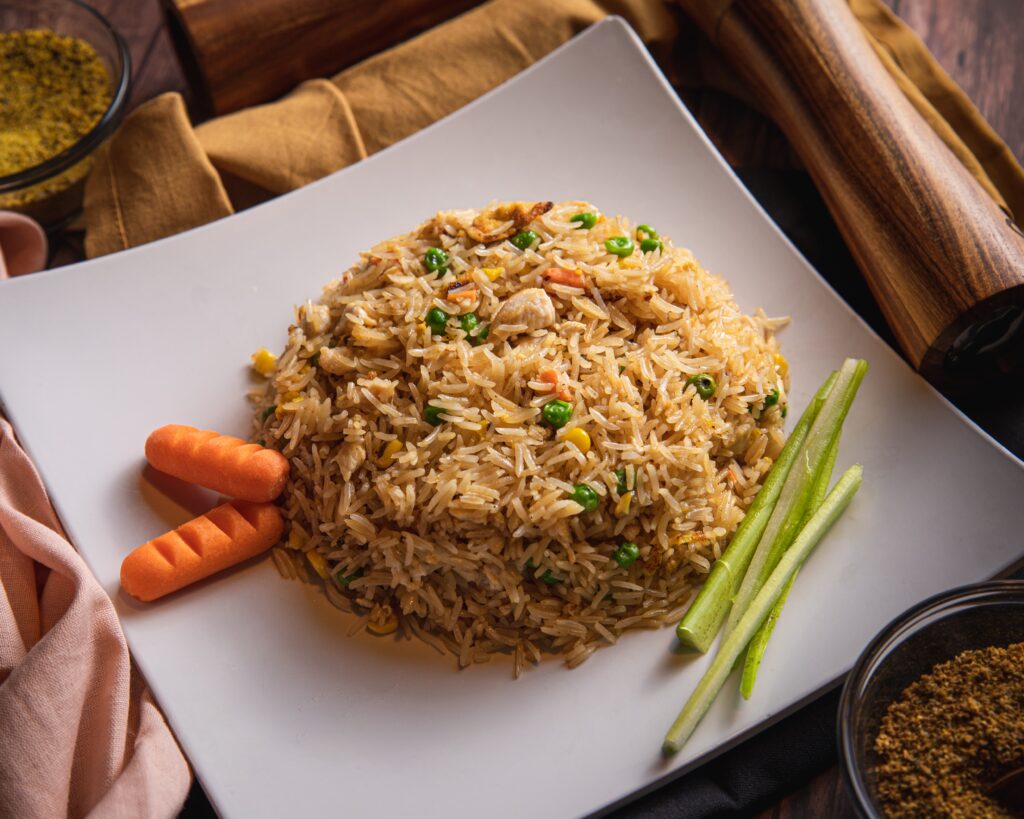You must have heard from dieticians, fitness trainers, influencers, and various advertisements that brown rice is good for cholesterol, weight loss, diabetes, and overall health. We know that brown rice is whole grain and contains high levels of dietary fiber and magnesium, which is quite nutritious for the overall health of the human body.
Is brown rice good for cholesterol?
This article will discuss whether brown rice is good for cholesterol. Let’s take a look:
Many Scientific studies have proved that including brown rice in your diet can help to regulate LDL Cholesterol in our bodies. When high-level of LDL cholesterol (Low-density lipoprotein), or bad cholesterol in simpler words, accumulate in our bodies, chances of strokes, heart-related problems, and artery diseases also increase. Therefore, doctors and dieticians worldwide recommend swapping brown rice with white rice in diets, especially for those suffering from heart-related problems.
Nutritional value of brown rice (100 gm)
| Total Calories | 109 |
| Total fat: 0.8 g | 0.8 g |
| Cholesterol: 0 g | 0 g |
| Total Carbohydrates: 23 g | 23 g |
| Sodium: 1 mg | 1 mg |
| Potassium: 77 mg | 77 mg |
| Protein: 2.3g | 2.3g |
| Calcium: 0.8% | 0.8% |
| Vitamin C: | 0% |
| Vitamin A: | 0% |
| Iron: 2.9% | 2.9% |
From the above table, one serving of brown rice has a high amount of protein and fiber, which further helps control high cholesterol levels and offers a nutritious meal to the body. Not to forget, fibers also regulate our digestive system.
Important Note: The potassium level in brown rice is higher than in white rice. Therefore, people suffering from kidney-related problems must avoid brown rice and can go for white rice.

Brown rice vs. White rice
Brown rice is a whole grain that retains its bran and germ, offering more fiber, vitamins, and minerals than white rice, which has these nutritious parts removed. Consumed globally, rice has over 7,000 varieties, with white and brown rice being the most common in the U.S. Brown rice’s benefits include being nutrient-rich, positively affecting blood sugar levels, reducing heart disease risk, being rich in antioxidants, and aiding weight control. On the other hand, white rice is softer, cooks faster, and is a staple in many traditional cuisines. However, brown rice contains antinutrients like phytic acid and has higher arsenic levels than white rice. Both types of rice can be part of a balanced diet, but brown rice generally offers a more favorable nutritional profile.
Suitability of brown rice
Many people are recommended to follow a particular type of diet because of diseases and other health-related problems. If you are figuring out if brown rice is suitable for your diet, check out the table below to get a clear perspective.
| Diet | Suitability |
| Low-carb diet | Yes |
| Diabetes | Yes (moderate amount) |
| Vegan | Yes |
| Keto Diet | No |
| Paleo diet | No |
| Gluten-Free | Yes |
Frequently asked questions
1. Does brown rice raise cholesterol?
No, brown rice won’t raise your cholesterol levels. Instead, high dietary fiber will lower your cholesterol, making it a great meal option.
2. What reduces cholesterol quickly?
Incorporating food enriched with soluble fiber will help to reduce cholesterol. Soluble fiber can be found in oatmeal, sprouts, apples, pears, kidney beans, quinoa, etc.
3. Is brown rice heart-healthy?
Yes, brown rice is quite healthy for the heart as it is enriched with protein and fiber.
4. Can brown rice be eaten daily?
Eating brown rice daily in moderate amounts is beneficial to the body as it has a good amount of dietary fiber and proteins. It will help to regulate cholesterol levels.
Conclusion
From the above article, we can infer that brown rice is one of the healthiest foods for people suffering from high cholesterol levels and can be incorporated into diets easily in several ways, However, it is important to know that it must be consumed in moderation or can have negative effects.
Also Read: Are Fritos healthy?

